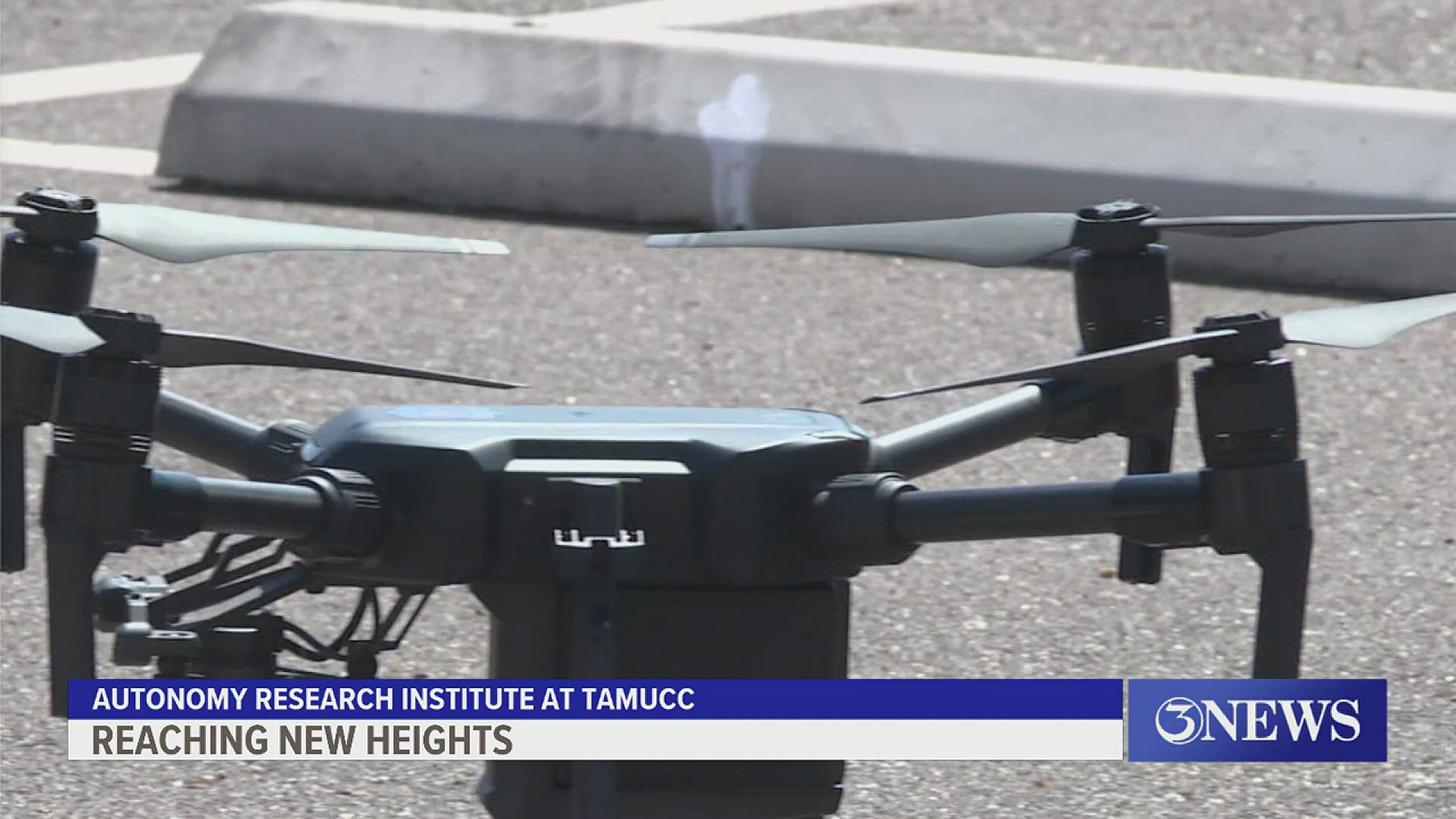CORPUS CHRISTI, Texas — Over the last 10 years, it's been responsible for leading the way in significant advancements in drone research.
Now it's undergoing a significant name change.
The Lone Star UAS Center at Texas A&M University-Corpus Christi, located in Flour Bluff, is now known as the Autonomy Research Institute or ARI.
The institute is one of only seven designated drone test-sites nationwide.
Over the last decade, its research has evolved, and so have the job opportunities that come with it.
The next time you get in a self-flying taxi or get a package delivered by a drone, know the research started right here in Corpus Christi.
Mike Sanders is the Executive Director of the Autonomy Research Institute
"You already have air taxi companies out there that are in the process of being certified by the FAA," he said.
Sanders said the tech is already here, in many of the cars driven today.
"Whether it's driver assistance, cruise control, self parking vehicles," he said.
He has had a front-row seat to the future.
It was back in 2019 when ARI first partnered with NASA on a study to see how multiple drones can navigate tall buildings using downtown Corpus Christi as a testing ground.
That has since evolved and so has their name.
"Only natural we move into autonomy," he said.
The field peaked the interest of TAMUCC student Brady Bottari.
"There's new stuff coming out everyday, really cool to see the direction its going in," Bottari said.
The institute's next big project -- working with the Texas State Aquarium and Padre Island National Seashore to save cold-stunned turtles and detect turtle nesting using drones and AI.
"Basically flying drones with those sensors, be able to share that information with the park service, alert them, and instead of having to drive up and down the beach, they can actually go pinpoint where they need to go, saves a lot more time," Sanders said.
As their research expands, so does their workforce.
In 2014, ARI only had a half dozen full time staff.
Today its over 40 people involved.
If I would grow the institute the way I would like to, talking 100 people," said Sanders.
Just 3 years ago Javier Vera started as an student intern and now, he's a software application developer with the institute.
"A lot of growth here, I'm a software developer, great field to get into," said Vera.
And that means jobs.
"The jobs are there and they're also being created there are some estimates that this will be a one trillion dollar industry by 2040," said Sanders.
The institute has also outgrown its Flour Bluff headquarters, and now has a space at the Corpus Christi International Airport with plans to expand to an office downtown for a second mission control center.

